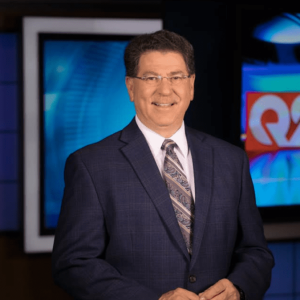An obscure Montana tax-credit program approved by state lawmakers four years ago was heard Wednesday in the U.S. Supreme Court.
At issue is whether religious schools can be excluded from government backed scholarship programs.
It's a case with potentially far reaching implications for church-state relations across the country, according to legal experts.
Wednesday's hour-long hearing, showcased the divide between the court's conservative and liberal justices.
CBS News' Jan Crawford, the networks' chief legal correspondent, was in the court to witness the hearing.
While she admits it's a mistake to predict the outcome of a case based on oral arguments alone, the battle lines were clear.
"Based on the arguments today, the conservative justices- and they have the majority on this court- seemed sympathetic to the idea that these parents should be able to have access to that scholarship money to send their children to those private religious schools,” said Crawford. “The liberal justices were skeptical, and seemed concerned that ruling for the parents in this case - will kind of open up a Pandora's box - and potentially undermine public funding for public schools.”
The case stems from a program created by the Montana Legislature in 2015 that allowed residents to receive a tax credit of up to $150 for a contribution to a scholarship program. The donations were then used to fund tuition scholarships for children seeking to attend the private school of their choice. In Montana, the majority of private schools are religiously affiliated.
Soon after, however, the Montana Department of Revenue excluded religiously affiliated schools from the program, citing the fact that the state Constitution bars state funds for religious education.
Three low-income mothers, Kendra Espinoza, Jeri Ellen Anderson and Jaime Schaefer, sued, saying they were counting on the scholarships so that they could keep their children at the Stillwater Christian School in Kalispell, Montana.
Their lawyers from the non-profit Institute for Justice argued that they couldn't be denied public benefits that were widely available to others for non religious, private schools.
The Montana Supreme Court invalidated the whole program holding that it violated the state constitution that bars state funds to aid religious schools.
On Wednesday, Chief Justice John Roberts, fresh off a late night presiding over the impeachment trial in the U.S. Senate, posed sharp questions to both sides during today's hearing. Many believe he may have the swing vote on this case.
“Justice Roberts was pretty active during the arguments,” said Crawford. “He's a conservative and this is a court, that in recent years has been more favorable - with the conservative majority, to claims of religious discrimination.
The “no-aid” clause in the Montana constitution bans any taxpayer dollars from going to religious schools and mirrors similar laws in 36 other states.
Attorneys for the parents told the court that such clauses were motivated by bigotry toward Catholicism in the 1800s. But the state's attorney said that wasn't the case in Montana.
“Montana's lawyer in court today, made it clear that whatever motivated state amendments in the 1800s was not the case in Montana because it rewrote that in 1972, and actually had testimony from religious leaders and pastors who supported the amendment, Crawford said. “They were worried about government interference with their ability to practice religion.”
As for when to expect a decision, Crawford believes it will come in June.
Crawford said this year's new term for the court features a full plate of contentious, controversial issues, in fact, the most she's seen in her 25 years of covering the Supreme Court.
Those tough decisions, she said, take longer to reach as they frequently involve dissenting opinions and just take more of the court’s time to decide.





